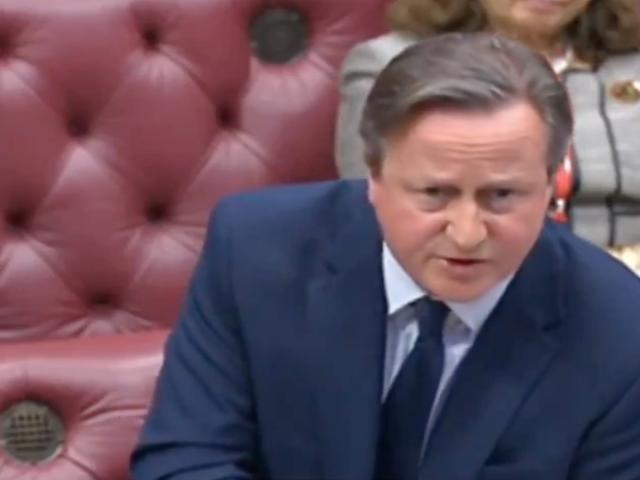In a controversial move that underscores the double standard of international relations and human rights advocacy when it comes to Israel, the United Kingdom has imposed a significant ultimatum on Israel, one of its historically close allies. The British government has declared it will halt arms sales to Israel unless the latter grants the International Committee of the Red Cross access to the members of the Nukhba force, who are currently detained for their involvement in the tragic events of October 7th. This decision emerges against the backdrop of Hamas' steadfast refusal to permit Red Cross visits to the Israeli hostages, adding layers of complexity to an already fraught situation.
British Foreign Secretary David Cameron, in a stark warning to Israel, emphasized that non-compliance would not only lead to a unilateral British embargo but could also encourage a broader European arms sale ban. The UK's leadership in advocating for Red Cross access to the detained terrorists positions it at the forefront of a contentious debate, asserting that Israel's refusal violates international law.
Definitely I agree, @David_Cameron but only after you give the same ultimatum to Hamas Nazis and they agree to let the Red Cross visit our hostages as well.https://t.co/IKtgKPCnQt
— Avraham Israeli Zionist 🇮🇱🇨🇦 (@IsraeliAvraham) March 21, 2024
Israel maintains that it reserves the right to restrict access to the prisoners for security reasons. This stance has sparked a wave of criticism from political officials within the country, with Foreign Minister Israel Katz vocally opposing the British demand, arguing that it indirectly bolsters Hamas by legitimizing its escalating demands in prisoner exchange negotiations.
The international response has been mixed, with Canada and Italy already ceasing arms sales to Israel, citing internal legal considerations. Although these decisions are largely symbolic—given the minimal historical arms trade between these countries and Israel—they signify a potential shift in international support that could have wider implications. The withholding of armored vehicles and night vision equipment by Canada, despite the symbolic nature of its embargo, has raised concerns in Israel about a possible domino effect that could isolate the country on the global stage.
It's curious why there hasn't been as much effort to organize Red Cross access to the hostages held by Hamas all this time. Could it be that the lives of terrorists who participated in the October 7th massacre are more important to Britain? We're witnessing humanity in all its…
— Michael Livschitz (@MikeLivschitz) March 21, 2024
The comparison of David Cameron to Ernest Bevin, a historical figure known for his opposition to the creation of a Jewish state and support of Arabs bent on finishing Hitler's efforts, by critics within Britain’s Jewish community underscores the depth of discontent with the current British stance. Cameron's recent admonishments of Israeli war cabinet member Benny Gantz in London have further inflamed tensions. Cameron's demands for increased aid flow into Gaza and a "humanitarian pause" in military actions reflect a broader critique of Israel's conduct in Gaza, particularly the framing of Israel as an "occupying power" with specific legal obligations—a characterization that Israel vehemently disputes, arguing that its military actions are defensive measures against a genocidal adversary.
Cameron's assertion of the UK's conditional support for Israel's self-defense, tied to its adherence to international humanitarian law, and his threat of recognizing a Palestinian state to pressure Israel into accepting a two-state solution post-ceasefire, highlight a fundamental disagreement on the paths to peace and security in the region. This all on the heels of an admission by Palestinian Authority officials that the Red Cross is a crucial partner in ensuring payments for terror attacks are directed to prisoners in Israeli jails. The admission, which shows that the Red Cross helps with the "pay-to-slay" program is yet another piece of evidence that ties international aid organizations to Palestinain terror networks.
According to Qadura Fares, head of the PLO Prisoner Affairs Authority, the International Committee of the Red Cross is “an essential partner in the process that enables the payment of rewards to the imprisoned Palestinians.” In other words, pay for slay. https://t.co/jVCitfpmhe pic.twitter.com/NSrRJNIUWO
— Shawn Steen (@ShawnSteen15) March 20, 2024
Moreover, the spotlight on the Red Cross's inability to assist Israeli hostages, juxtaposed with the demand for access to Nukhba force members, reveals a disconcerting double standard in international humanitarian efforts, further complicating an already complex narrative of conflict, rights, and diplomacy.


